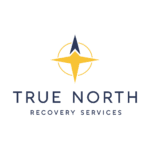Managing withdrawal symptoms in outpatient settings requires specialized knowledge, careful monitoring, and a comprehensive approach to patient care. As substance use disorders continue to affect millions of individuals, understanding how to effectively support patients through withdrawal while they maintain their daily routines becomes increasingly critical for healthcare providers.
What Are Withdrawal Symptoms During Outpatient Treatment?
Withdrawal symptoms represent the body’s physiological response to reducing or discontinuing substance use. When decreasing amounts of the substance are available, withdrawal develops due to compensatory physiologic adaptation from continuous exposure to drugs or substances.
In outpatient settings, patients experience these symptoms while living at home and maintaining work or family responsibilities, making proper management essential for successful recovery.
Common Withdrawal Symptoms Across Substances
Physical Symptoms:
- Tremors and muscle aches
- Nausea and vomiting
- Sweating and fever
- Insomnia and fatigue
- Headaches
Psychological Symptoms:
- Anxiety and irritability
- Depression
- Difficulty concentrating
- Mood swings
- Cravings
Neurological Symptoms:
- Seizures (in severe cases)
- Hallucinations
- Confusion
- Memory problems
How Long Do Withdrawal Symptoms Last?
The duration varies significantly depending on the substance and individual factors:
Alcohol Withdrawal Timeline
Alcohol withdrawal symptoms appear within 6-24 hours after stopping alcohol, are most severe after 36-72 hours and last for 2-10 days.
Opioid Withdrawal Duration
Withdrawal symptoms for fast-acting opioids like heroin or oxycodone may last four to five days, but withdrawal symptoms for slow-acting opioids like methadone can last for a week or longer.
Extended Recovery Timeline
While acute symptoms resolve relatively quickly, psychological symptoms may last for weeks, months, or even years, depending on the severity of misuse.
Substance-Specific Withdrawal Patterns
Alcohol Withdrawal Management
Alcohol withdrawal syndrome is due to overactivity of the central and autonomic nervous systems, leading to tremors, insomnia, nausea and vomiting, hallucinations, anxiety, and agitation.
Severity Levels:
- Mild: Tremors, mild anxiety, insomnia
- Moderate: Increased tremors, sweating, mild confusion
- Severe: Seizures, delirium tremens, severe confusion
Treatment Approach:
- Benzodiazepines are first-line therapy for moderate to severe symptoms, with carbamazepine and gabapentin as potential adjunctive or alternative therapies
- Daily monitoring for up to five days
- Hydration and nutritional support
Opioid Withdrawal Symptoms
Opioid withdrawal symptoms include diarrhea, nausea and vomiting, though this condition isn’t life-threatening, it can make patients feel very sick.
Management Strategies:
- Medication-assisted treatment (MAT)
- Symptomatic relief medications
- Behavioral support interventions
Other Substance Withdrawals
Cannabis Withdrawal: Marijuana withdrawal symptoms appear within 1-3 days and can last up to two weeks, associated with mood and gastrointestinal symptoms.
Key Challenges in Outpatient Withdrawal Management
Monitoring Limitations
Unlike inpatient settings, outpatient care requires:
- Patient self-reporting of symptoms
- Scheduled check-ins rather than continuous monitoring
- Family or support system involvement
- Clear emergency protocols
Safety Considerations
When to Refer to Higher Level of Care:
- History of withdrawal seizures
- Severe cardiovascular conditions
- Lack of social support
- Multiple failed outpatient attempts
- Concurrent mental health crises
Evidence-Based Treatment Approaches
Medication-Assisted Treatment (MAT)
For Alcohol Use Disorder:
- Naltrexone
- Acamprosate
- Disulfiram
For Opioid Use Disorder:
- Buprenorphine
- Methadone
- Naltrexone
Symptomatic Management
Common withdrawal symptoms include nausea, vomiting, diarrhea, anxiety and insomnia, which can be managed with appropriate symptomatic medications.
| Symptom | Treatment Options |
|---|---|
| Nausea/Vomiting | Ondansetron, Promethazine |
| Anxiety | Benzodiazepines, Gabapentin |
| Insomnia | Trazodone, Melatonin |
| Muscle Aches | NSAIDs, Muscle relaxants |
| Diarrhea | Loperamide, Fluid replacement |
Monitoring and Assessment Tools
Clinical Assessment Instruments
Alcohol Withdrawal Scale (AWS): The Alcohol Withdrawal Scale should be administered every monitoring session, with patients monitored 3-4 times daily for symptoms and complications.
COWS (Clinical Opiate Withdrawal Scale):
- Measures 11 common opioid withdrawal symptoms
- Provides objective scoring system
- Guides treatment decisions
Vital Signs Monitoring
Regular assessment should include:
- Blood pressure and heart rate
- Temperature
- Respiratory rate
- Mental status evaluation
Patient Education and Support
What Patients Need to Know
Symptom Expectations:
- Timeline of symptom progression
- When to seek emergency care
- Normal vs. concerning symptoms
Coping Strategies:
- Hydration and nutrition
- Rest and sleep hygiene
- Stress management techniques
- When to contact healthcare providers
Family and Support System Education
- Recognition of withdrawal symptoms
- Emergency response protocols
- Emotional support strategies
- Boundary setting and enabling prevention
Creating Comprehensive Care Plans
Assessment Phase
Medical History Review:
- Previous withdrawal experiences
- Medical comorbidities
- Current medications
- Support system evaluation
Risk Stratification:
- Low, moderate, or high-risk classification
- Appropriate level of care determination
- Safety planning
Treatment Planning
Individualized Approach:
- Patient preferences and goals
- Cultural considerations
- Financial and logistical factors
- Concurrent mental health needs
Technology and Remote Monitoring
Digital Health Tools
- Telemedicine consultations
- Mobile apps for symptom tracking
- Wearable devices for vital sign monitoring
- Online support groups and resources
Benefits of Technology Integration
- Increased access to care
- Real-time symptom monitoring
- Enhanced patient engagement
- Cost-effective care delivery
Frequently Asked Questions
Can withdrawal symptoms be life-threatening in outpatient settings?
While most withdrawal symptoms are manageable in outpatient settings, certain conditions like alcohol withdrawal can be life-threatening due to potential seizures and delirium tremens. Proper assessment and monitoring are crucial.
How do healthcare providers monitor patients remotely?
Providers use a combination of scheduled check-ins, patient self-reporting tools, telemedicine consultations, and family involvement to monitor patient progress and safety.
What should patients do if symptoms worsen unexpectedly?
Patients should have clear instructions on when to contact their healthcare provider or seek emergency care, including specific symptoms that warrant immediate attention.
How long does medical supervision typically last?
Physicians should monitor outpatients with alcohol withdrawal syndrome daily for up to five days after their last drink, though this varies by substance and individual risk factors.
True North Recovery Services: Comprehensive Outpatient Care
At True North Recovery Services, we understand that managing withdrawal symptoms during outpatient treatment requires specialized expertise and compassionate care. Located in the Denver Metro Area, our team provides comprehensive addiction treatment services designed to support individuals through every stage of recovery.
Our Approach to Withdrawal Management:
- Comprehensive Medical Care: Our experienced clinical team provides evidence-based treatment protocols tailored to each individual’s needs
- Medication-Assisted Treatment: We offer MAT options for opioid and alcohol use disorders to ease withdrawal symptoms and support long-term recovery
- 24/7 Support: Understanding that withdrawal doesn’t follow business hours, we provide accessible support when patients need it most
- Holistic Treatment Philosophy: Beyond managing symptoms, we focus on treating the whole person through our comprehensive, personalized approach
Services We Provide:
- Outpatient detoxification support
- Individual and group counseling
- Family therapy and education
- Recovery support services
- Mental health treatment for co-occurring disorders
- Sober living support and resources
Our mission extends beyond symptom management. We facilitate our clients’ journey away from substance abuse toward self-discovery, helping individuals find aspects of who they were always meant to be for a more fulfilling existence.
Finally
Successfully managing withdrawal symptoms during outpatient treatment requires a multifaceted approach combining medical expertise, patient education, family involvement, and comprehensive support systems. Healthcare providers must maintain vigilant monitoring while empowering patients with the knowledge and tools needed for safe recovery.
The key to successful outpatient withdrawal management lies in:
- Thorough assessment and risk stratification
- Evidence-based treatment protocols
- Regular monitoring and communication
- Patient and family education
- Clear emergency protocols
- Comprehensive follow-up care
As the field continues to evolve with technological advances and improved understanding of addiction medicine, outpatient withdrawal management offers an increasingly viable option for many patients seeking recovery while maintaining their daily responsibilities and support systems.
By implementing these evidence-based strategies and maintaining a patient-centered approach, healthcare providers can effectively support individuals through the challenging but crucial phase of withdrawal, setting the foundation for long-term recovery success.
For more information about comprehensive addiction treatment and withdrawal support services, contact True North Recovery Services at (720) 669-6793 or visit us at 2696 S Colorado Blvd Ste 445, Denver, CO 80222.


